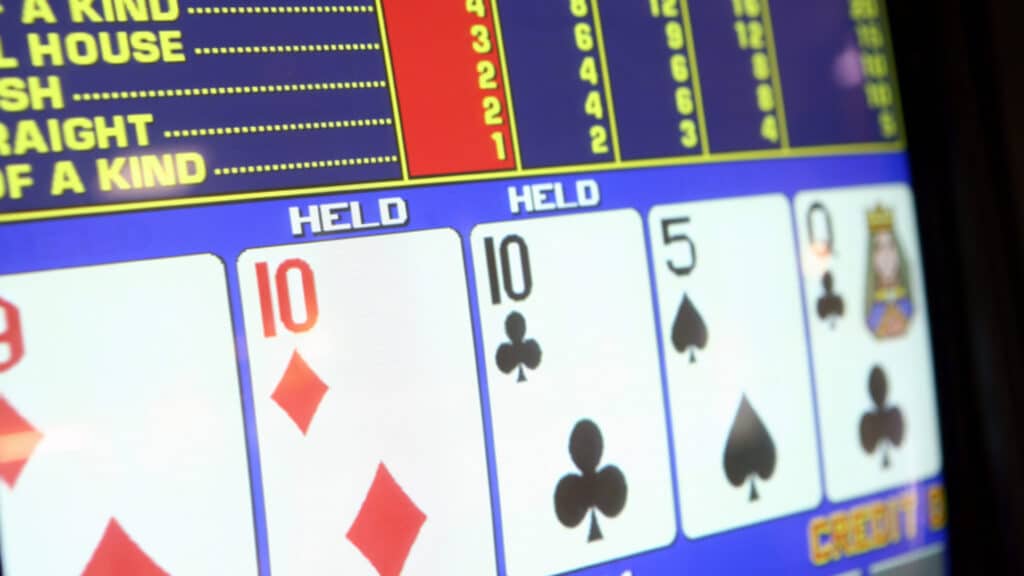Video poker is one of the most engaging and rewarding games you can play in an online casino. While it may seem like a simple game based on drawing cards, the strategy behind it is more complex than many players realize. Developing a solid study routine is key to improving your skills and maximizing your chances of winning. In this article, we will guide you through the process of building an effective online video poker study routine. Whether you're a beginner eager to learn the ropes or an experienced player looking to refine your skills, this guide is designed to help you take your video poker game to the next level.
Why Having a Study Routine is Essential for Success
To become proficient at video poker, it's crucial to understand the game beyond just placing bets. A structured study routine can help you learn the mathematical probabilities, optimal strategies, and nuances that determine success in the long run. Having a study routine provides you with direction, ensuring you're consistently making improvements and reinforcing essential concepts.
Understanding the Importance of Strategy in Video Poker
Unlike slot machines, where outcomes are entirely random, video poker combines elements of luck and skill. In fact, the difference between a casual player and a skilled one is often their understanding of basic strategy. By following a solid strategy, you can reduce the house edge, improve your chances of winning, and increase the overall return on your investment. Your study routine will help you master these strategies, making you a more strategic and informed player.
Key Elements to Include in Your Online Video Poker Study Routine
When building a study routine for video poker, there are several key elements that you should focus on. These components will help you develop a well-rounded skill set that will serve you well at the virtual poker table.
1. Learning the Basic Video Poker Rules
Before diving into complex strategies, you need to master the fundamentals of video poker. Understanding the rules of the game is the first step in creating a study routine. While video poker can vary slightly depending on the variant you're playing (e.g., Jacks or Better, Deuces Wild, Joker Poker), the core gameplay mechanics are generally the same. You are dealt five cards, and the goal is to make the best possible poker hand. After evaluating your hand, you can choose which cards to keep and which to discard, with the aim of improving your hand to a winning one.
Start by learning how the paytable works for each variant and understand the hand rankings. This foundational knowledge is essential before you can move on to more advanced strategies.
2. Mastering the Basic Strategy
Each video poker variant has an optimal strategy that maximizes your chances of winning. This strategy is based on probabilities, helping you make the best decisions based on your initial hand. For example, in a game like Jacks or Better, the strategy will teach you when to hold onto pairs, when to discard high cards, and when to hold onto a straight or flush draw.
Your study routine should involve memorizing and practicing these strategies. Use strategy charts, which show the optimal play for each possible hand you might encounter. Many online resources and apps also provide video poker training tools that will help you practice these strategies in a simulated environment.
3. Understanding the Role of Variance
Video poker, like all casino games, involves an element of variance. This means that short-term results can be unpredictable, even when you're following optimal strategy. Understanding variance is crucial because it helps you manage your expectations and bankroll. A game with high variance may result in longer dry spells between wins, while a low-variance game may offer more frequent, smaller wins.
Your study routine should include learning how to manage variance, adjusting your strategy and mindset based on the game you're playing. Knowing the volatility of the specific video poker variant you’re engaging with can help you adjust your bet size and pacing to maximize your potential for long-term success.
4. Analyzing and Evaluating Your Play
As you progress in your video poker journey, it's essential to regularly assess and evaluate your performance. By reviewing your gameplay and decisions, you can identify areas for improvement. One way to do this is by recording your sessions and analyzing them later. Were there times when you could have made a better decision? Did you follow the basic strategy correctly, or did you get distracted?
Incorporating this self-assessment into your study routine allows you to fine-tune your strategy and reduce the likelihood of making costly mistakes. Many advanced players use tracking software and apps to log their hands, making it easier to identify patterns and areas where they can improve.
5. Practicing Bankroll Management
Bankroll management is an essential aspect of any successful gambling strategy. Video poker may offer high payouts, but it also requires careful management of your funds to ensure you're not at risk of depleting your bankroll too quickly. Set limits for how much you're willing to wager per session and stick to them.
Your study routine should incorporate strategies for managing your bankroll, including knowing when to stop playing if you're on a losing streak and how to adjust your betting sizes based on your current bankroll. For advanced players, calculating your expected return based on the paytable and your betting strategy can provide a deeper understanding of how to optimize your bankroll for long-term play.
Incorporating Advanced Video Poker Strategies
Once you have a solid grasp of the basics and have built a foundational routine, it's time to dive deeper into advanced strategies. These strategies take into account specific game variants, mathematical probabilities, and deeper decision-making to further minimize the house edge.
1. Advanced Strategy Charts and Hand Analysis
As you become more comfortable with the basics, you should begin to study advanced strategy charts. These charts will take into account factors such as the number of remaining cards, the likelihood of drawing a particular hand, and the specific payout structure of the game you're playing. Memorizing these charts and using them during gameplay will drastically improve your decision-making skills.
Another key element of advanced strategy is hand analysis. Advanced players study specific hand scenarios, running simulations of how certain hands might play out based on the remaining cards in the deck. This allows for more precise decision-making in situations where the basic strategy might not apply directly.
2. Using Combinations and Probabilities
Understanding the odds and probabilities in video poker is another essential skill for advanced players. At its core, video poker is a game of probabilities—your goal is to maximize the chances of drawing a winning hand. Knowing the odds of drawing a certain card or completing a straight or flush can help you make better decisions. For example, if you have a pair of jacks and no other useful cards, the probability of drawing a second jack is 4 in 47 if you are playing a 52-card deck. By studying these probabilities, you can make more informed decisions about which cards to hold and which to discard.
3. Optimal Betting Strategies for Video Poker
Betting size is crucial in video poker, and knowing when to adjust your wagers can make a big difference in your profitability. Advanced players often use betting strategies like the Martingale system or the Paroli system to help manage their bets and mitigate losses. These systems can be useful in certain circumstances, but they also come with their own risks. A well-rounded study routine should involve understanding when to use such systems and when to avoid them, based on your personal goals and the specific video poker variant you’re playing.
Fun Facts and Tips for New Video Poker Players
Here are some fun facts and tips to keep in mind as you start your video poker journey:
- Video poker was invented in the 1970s and became one of the first popular casino games to be played on computer screens.
- Some video poker variants, such as Deuces Wild, offer the potential for even higher payouts, but they also require a deeper understanding of strategy.
- The highest payout in video poker can often be achieved by hitting a royal flush, which typically offers the biggest jackpot in most variants.
- Online video poker offers more flexibility with stakes and gameplay options than traditional land-based casinos, allowing players to practice without feeling pressured.
Conclusion: Developing a Winning Video Poker Study Routine
Building an effective study routine is key to mastering online video poker. By focusing on understanding the game, memorizing strategies, analyzing your play, and applying advanced techniques, you will be well on your way to becoming a successful video poker player. Remember, consistency is key—make sure to practice regularly, review your performance, and adjust your strategies as needed. Whether you're playing for fun or aiming for bigger rewards, a structured study routine will give you the skills needed to succeed in the world of online video poker.



